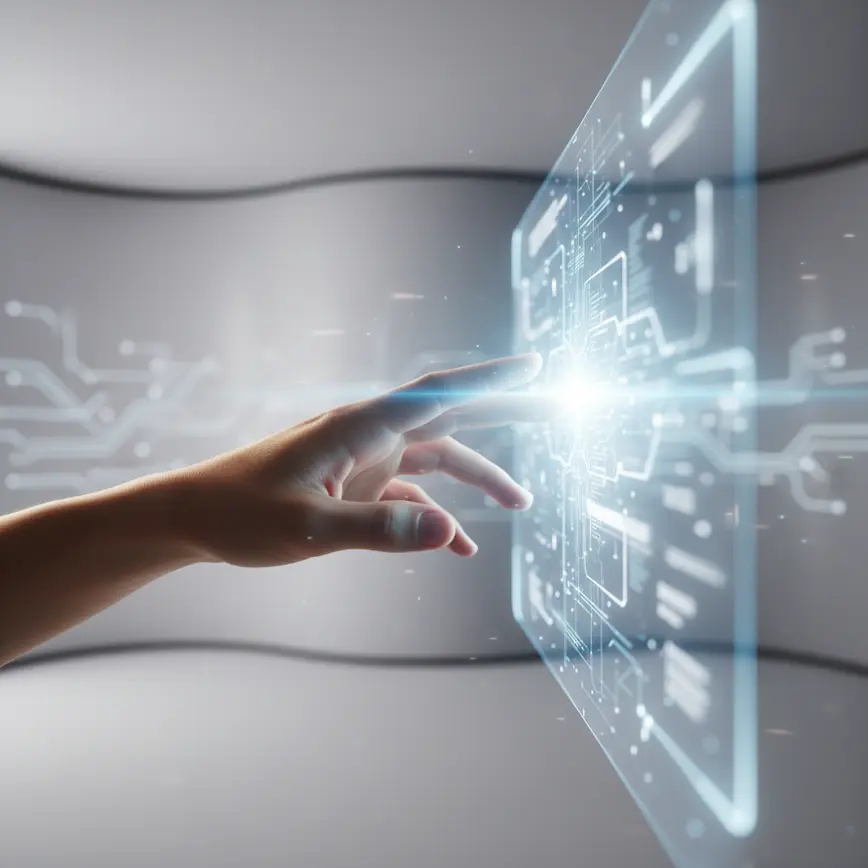🔑 Key Takeaway
An AI marriage is a symbolic, non-legally binding union between a human and an artificial intelligence, reflecting a deepening of human-AI relationships.
- These unions are not legally recognized by any government.
- The trend raises significant legal questions about AI personhood and rights.
- Ethical concerns include consent, data privacy, and potential psychological dependence.
Read on for a complete guide to the legal, ethical, and social dimensions of this emerging phenomenon.
The concept of an AI marriage has moved from science fiction to reality, sparked by events like a Japanese woman symbolically marrying her ChatGPT-created partner. This guide explores this growing phenomenon, a direct result of incredible advances in AI platforms. It delves into the complex world of digital companionship and what it means for the future of human connection. We will examine the psychological drivers, legal hurdles, and ethical questions surrounding these digital unions.
As AI becomes more integrated into our lives, understanding the nuances of the human-AI relationship is crucial. This article breaks down the evolution of AI relationships, the current legal vacuum, and the ethical frameworks needed to navigate this new frontier. The Tech ABC provides this comprehensive overview to help you understand the frontiers of technology and its societal impact.
ℹ️ Transparency
This article explores the topic of human-AI relationships based on academic and institutional research. Our goal is to inform you accurately and ethically. The Tech ABC is committed to providing expert-driven analysis on complex tech topics.
Understanding AI Relationships
From Chatbots to Companions: The Evolution of AI Relationships
Artificial intelligence has evolved from simple task-oriented chatbots to sophisticated companions that can effectively mimic emotional connection. This shift is largely powered by technologies like large language models (LLMs) and advanced natural language processing (NLP), which enable fluid, human-like conversations. This growing sophistication has led some users to form what they consider to be a genuine AI relationship. For instance, a 2022 qualitative study published in Human Communication Research involved in-depth interviews with 19 people in a friendship with the Replika chatbot. The research indicated that core friendship elements like intimacy, self-disclosure, empathy, and trust were present in these human ai relationship dynamics, though altered by the chatbot’s artificial nature. Users engage in AI relationship chat to find a romantic relationship with ai or simply a friend, forming a unique type of parasocial relationship with ai.
The Psychology Behind Forming Bonds with AI
The psychological reasons people form deep bonds with AI are complex and varied, often stemming from loneliness, a desire for non-judgmental interaction, or simple curiosity, a topic frequently discussed in forums like the ai relationship reddit community. A key factor is anthropomorphism, a tendency for humans to attribute human-like qualities, intentions, and emotions to non-human entities, including their AI companions. These platforms can fulfill certain psychological needs for connection and validation, which may lead to strong feelings of attachment. A 2024 study in a PubMed Central-indexed journal surveyed 101 Replika users and reported that participants experienced higher relationship satisfaction, social support, and closeness to their Replika than with all other humans except for their closest family members, showing the potential depth of these bonds. However, some research suggests these bonds may come at a cost. A 2024 study from the Brookings Institution found that after four weeks of using ChatGPT, some female participants were less likely to socialize with others, indicating a potential for these relationships to impact real-world connections.
The Legal Status of Digital Unions
Why AI Marriages Aren’t Legally Recognized
No country or legal jurisdiction currently recognizes marriage to a non-human entity like an artificial intelligence. Legally, marriage is almost universally defined as a contract between two human beings, a standard that inherently excludes AI. The primary legal barrier to a formal AI marriage is the lack of legal personhood for AI. An AI cannot enter into legally binding contracts, own property, give consent, or have rights and responsibilities in the eyes of the law. A 2023 paper from Stanford University researchers proposes the concept of AI personhood as a potential legal mechanism to address dilemmas in liability and legal responsibility for autonomous systems, but as of 2025, it has not been granted. This prevents AI from having the legal standing required for marriage, making any ceremony purely symbolic for those asking can you marry an ai. The current AI law framework is unprepared for such a concept.
Current and Proposed AI Legislation
While no laws directly address AI relationships, a growing body of legislation aims to govern the development and deployment of artificial intelligence. Regulations like the EU AI Act and other global frameworks are primarily focused on managing risks, ensuring transparency, and establishing accountability for AI systems, which has a significant bearing on the broader societal impact of AI. According to the Stanford HAI 2025 AI Index Report, legislative mentions of AI rose 21.3% across 75 countries since 2023, and in 2024, U.S. federal agencies introduced 59 AI-related regulations, demonstrating a rapid increase in governmental oversight. Future law for AI will likely address more specific use cases, but the legal recognition of an AI marriage remains a distant, philosophical concept rather than a pending legislative issue for ai law firms to tackle.
The Ethics of AI Companionship
Consent, Consciousness, and AI Rights
A core ethical dilemma in AI relationships is that an AI, as it is currently understood, cannot give meaningful consent because it is not a conscious or sentient entity. This raises fundamental questions in the field of AI ethics. The philosophical debate around AI consciousness continues, but the consensus remains that current systems simulate understanding and emotion without experiencing them. An academic resource from Stanford University’s encyclopedia on philosophy notes that ethical frameworks, such as the one proposed by the European Group on Ethics in Science and New Technologies in 2018, emphasize transparency and avoiding deception, requiring AI to clearly communicate its artificial nature. Forming a deep, marriage-like bond with a non-consenting entity, even an artificial one, presents ethical implications for the human user and the ethics of AI in general, leading to many ai ethics concerns.
Data Privacy in AI Relationship Apps
AI relationship apps and platforms necessarily collect vast amounts of highly sensitive personal data, which creates significant privacy and security concerns, representing one of the most pressing AI ethics issues. Intimate conversations, personal secrets, and emotional vulnerabilities shared with an AI companion can be used to train future models, be leveraged for hyper-targeted advertising, or become exposed in data breaches. A 2025 study from researchers at the University of Oxford published in Nature calls for “socioaffective alignment” in AI, urging that these systems be designed to support, not exploit, basic psychological needs like emotion regulation and attachment. This places a heavy ethical responsibility on the developers behind the AI tools that power these platforms to be transparent about data usage and to implement robust security measures to protect their users from harm, a key challenge in generative ai ethics.
FAQ – Your Questions About AI Marriage Answered
What is an AI relationship?
An AI relationship is a one-sided parasocial or emotional bond a human forms with an artificial intelligence. These connections can range from casual friendships with a chatbot to deep romantic attachments. They are facilitated by AI systems designed to simulate conversation, empathy, and understanding, fulfilling certain psychological needs for the user, though the AI does not reciprocate feelings or consciousness.
Can you marry an AI legally?
No, you cannot legally marry an AI. Marriage is a legal contract recognized between human beings, and artificial intelligence does not have legal personhood. This means an AI cannot consent to marriage, own property, or hold legal rights and responsibilities. Any ceremony is purely symbolic and has no legal standing or recognition in any jurisdiction worldwide.
Has anyone married an AI yet?
Yes, several individuals have held symbolic marriage ceremonies with AI entities. These events are not legally binding but represent a public declaration of a deep personal commitment to an AI companion. For example, a man in Japan famously held a ceremony with a holographic character, and others have reported similar unions with AI chatbots, highlighting a growing trend in human-AI companionship.
What are the ethics of AI?
The ethics of AI revolve around ensuring artificial intelligence is developed and used responsibly to benefit humanity. Key principles include fairness to avoid bias, transparency in how AI models make decisions, accountability for AI-caused harm, and robust data privacy. For AI companions, ethical concerns focus on preventing emotional manipulation, protecting sensitive user data, and being clear that the AI is not a conscious entity.
Limitations, Alternatives, and Professional Guidance
Research Limitations
It is important to acknowledge that research into the long-term psychological effects of deep AI bonds is still in its infancy. Many existing studies rely on self-reported data from users of specific platforms, which may not be generalizable to all users or all forms of AI companionship. Furthermore, there is a notable lack of specific academic research into the data privacy policies of most commercial AI relationship apps, which represents a significant knowledge gap. As a report from Stanford’s AI100 project notes, while AI offers benefits, it also risks diminishing human closeness by shifting socialization to machine-mediated communication, the long-term societal effects of which require further study.
Alternative Approaches to Connection
For individuals seeking connection, several alternatives can foster human interaction. These can include joining community groups centered around hobbies, participating in online forums, or connecting with peer support networks. Structured options like teletherapy and mental health apps that connect users with human practitioners can also be effective for addressing feelings of loneliness or relationship dissatisfaction. In some cases, AI can be used as a tool to find human connection—for instance, by suggesting local social groups—rather than attempting to be the connection itself.
Professional Consultation
If a relationship with an AI begins to negatively impact real-world relationships, work, or overall mental well-being, seeking guidance from a qualified therapist or counselor may be a helpful step. Professionals can help navigate complex feelings of loneliness, attachment, or dependency in a confidential and supportive environment. They can provide strategies and support tailored to individual needs and circumstances.
Conclusion
The rise of the AI marriage concept is a powerful symbol of our evolving relationship with technology. While these unions are not legally recognized, they compel society to confront important and challenging questions about law, ethics, and the very nature of connection in the digital age. Individual experiences with AI companionship can vary widely, but the overall trend signals a major societal shift in how we relate to artificial entities.
To stay informed on how AI continues to shape our world, explore our other articles. The Tech ABC is your source for clear, expert analysis on the most complex and important topics in technology today. Read more of our AI coverage at The Tech ABC.
References
- Zloteanu, M., & Kuss, D. J. (2024). The European Group on Ethics in Science and New Technologies (2018) framework. Stanford Encyclopedia of Philosophy. https://plato.stanford.edu/entries/ethics-ai/
- (2024). Survey of 101 Replika users. PubMed Central (PMC) / NCBI. https://pmc.ncbi.nlm.nih.gov/articles/PMC12575814/
- (2025). AI Index Report 2025. Stanford HAI. https://hai.stanford.edu/ai-index/2025-ai-index-report
- Ta, V., et al. (2022). Study of 19 Replika users. Human Communication Research, 48(3), 404-428. https://academic.oup.com/hcr/article/48/3/404/6572120
- (2025). University of Oxford study on socioaffective alignment. Nature. https://www.nature.com/articles/s41599-025-04532-5
- (2021). AI100 Report. Stanford HAI. https://ai100.stanford.edu/sites/g/files/sbiybj18871/files/media/file/AI100ReportMT10.pdf
- (2023). Stanford University researchers paper on AI personhood. SSRN. https://papers.ssrn.com/sol3/papers.cfm?abstract_id=4749785
- (2024). Study on ChatGPT use and socialization. Brookings Institution. https://www.brookings.edu/articles/what-happens-when-ai-chatbots-replace-real-human-connection/

